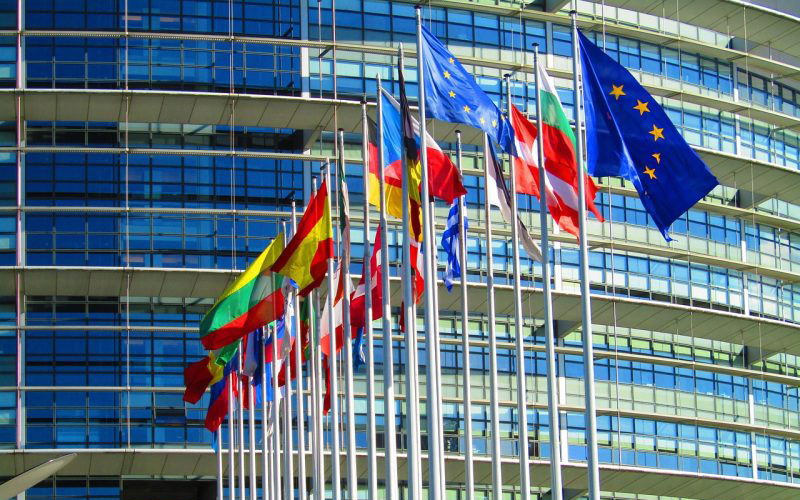Brexit has had an impact on the connection on the trade between the UK and EFTA. It also consists of Iceland, Liechtenstein, Norway, and Switzerland. The following broad information on how Brexit could affect commerce between the UK and EFTA is provided.
The impact of Brexit on EFTA Comprises:
Trade Agreements

The UK was a member of EU’s single market & customs union before Brexit. It eased commerce between the UK and EFTA member states. However, bilateral agreements agreed between the UK & every individual EFTA member would govern the UK’s commercial ties with EFTA nations after Brexit.
Customs and Duties
As the United Kingdom no longer remains a member of customs union of EU, the commerce amid the United Kingdom & EFTA will in fact be subject to the customs procedures as well as duties. In case of organizations involved in the cross-border commerce, it may lead to a surge in administrative work & expenditures.
Trade Barriers
Brexit may result in the addition of additional non-tariff trade restrictions such regulatory requirements, administrative obligations, and customs inspections. The flow of commodities between the UK & EFTA member states could be slowed considerably by these obstacles.
Negotiation of Novel Agreements
Each EFTA member would require a separate trade deal that the UK would have to negotiate. These agreements’ provisions would include a range of trade-related topics. These are, tariffs, rules of origin, quotas, and regulatory alignment.
Services Trade
There would also be a major impact on services trade. Although the EU contains rules that make trading in services easier inside the single market, UK would no longer be covered by these rules. Sectors including banking, professional services, and others could be impacted by this.
Regulatory Alignment
Although EFTA nations are not covered by EU’s regulatory framework, they frequently harmonize their laws with the EU’s in order to promote commerce. The UK’s regulatory structure may differ from the EU’s, which might make it difficult to harmonize legislation with EFTA nations.
Investment
As trading conditions & regulatory frameworks may change, it is possible that Brexit may have an influence on the attractiveness of the UK and EFTA member states as investment destinations.
SMEs
When it comes to the impact of Brexit on UK businesses, Small and medium-sized businesses (SMEs) may be disproportionately impacted by new regulatory requirements and customs processes. They could be incapable of negotiating the intricacy of the international trade owing to a dearth of resources & knowledge.
Economic Impact

The extent to which trade interruptions and additional costs influence different sectors will determine the overall economic impact both on the UK & EFTA member states. It may result in adjustments to consumer pricing, employment, and economic growth.
Rules of Origin
The nation of origin of items is determined by rules of origin, which are essential for entering preferential trade agreements. UK businesses in EFTA may be subject to increased tariffs or lose preferential status if the UK & EFTA member states fail to create advantageous rules of origin.
The Challenges of Brexit for EFTA Comprises:
- Complexity of the Supply Chain– Supply chains which span many nations are interconnected in many sectors throughout Europe. These supply networks may be disrupted by increased regulatory requirements, administrative difficulties, and customs inspections brought about by Brexit. EFTA nations doing business with the UK may experience delays, higher costs, and inefficiencies as a result of this complexity.
- Risk Management and Uncertainty– For companies and politicians in EFTA nations, the uncertainty that surrounds the Brexit process, particularly during the negotiating period, presented difficulties. Businesses had to respond to shifting trade regulations. Prepare for probable setbacks, and decide on investments, supply chain modifications, and market diversification.
- Loss of the Political Influence: Despite not being an EFTA member, the UK was still a significant political player in the EU. It helped to shape policies and the development of the single market. Brexit resulted in a huge loss for EFTA nations in terms of influencing EU policies. That might affect their trade & economic interests.
Need for UK Visa for EFTA Citizens
Usually, the visa type you require rests on the duration you desire to remain. Trip for business purposes might be bifurcated as a short-term business trip or a long-term work assignment. Short business trips frequently do not need visas, and people from EFTA nations may be permitted to enter the UK temporarily sans a visa for specific business purposes. However, you might require a
UK business visa if you want to work, remain for a long time, or conduct certain kinds of business.
Bottom Line
The effects of Brexit on commerce between the UK and EFTA are extensive and include modifications to tariffs, rules, trade agreements, & market access. New trade frameworks are being established. But the final results will rely on the conditions agreed upon and the capacity of firms to adjust to the changing trading environment.
 The UK was a member of EU’s single market & customs union before Brexit. It eased commerce between the UK and EFTA member states. However, bilateral agreements agreed between the UK & every individual EFTA member would govern the UK’s commercial ties with EFTA nations after Brexit.
The UK was a member of EU’s single market & customs union before Brexit. It eased commerce between the UK and EFTA member states. However, bilateral agreements agreed between the UK & every individual EFTA member would govern the UK’s commercial ties with EFTA nations after Brexit.
 The extent to which trade interruptions and additional costs influence different sectors will determine the overall economic impact both on the UK & EFTA member states. It may result in adjustments to consumer pricing, employment, and economic growth.
The extent to which trade interruptions and additional costs influence different sectors will determine the overall economic impact both on the UK & EFTA member states. It may result in adjustments to consumer pricing, employment, and economic growth.
